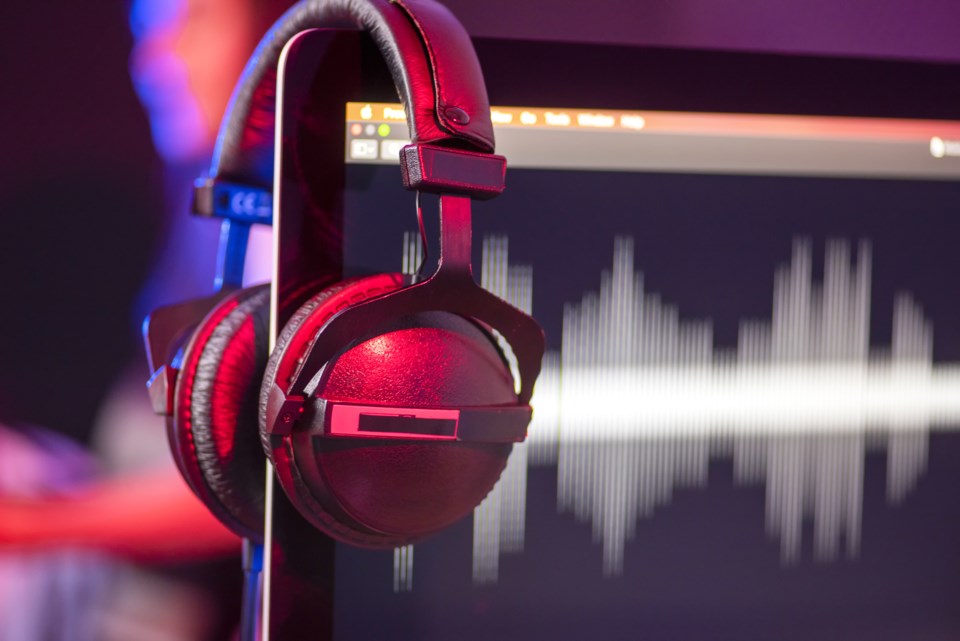In the last few weeks the absence of a designated hip hop radio station has been top of mind, as if somehow we all collectively woke up, looked around, and realized there is a gaping hip hop shaped hole where a new Â鶹´«Ã½Ó³»radio station should be.
Canadian creative incubators, like La Mar Taylor's HXOUSE in Toronto, speaks to the current landscape of music in Canada. Culture-makers and people on the cutting edge of what's cool and exciting are putting their time and energy into hip hop and rap, with new artists launching their careers in that genre all the time so clearly there is a demand for that style of music in this country but what about this city, specifically?
Why doesn't Â鶹´«Ã½Ó³»have a hip hop radio station?
There are numerous theories floating around, the primary one being CRTC requirements make it difficult for a station to exclusively play hip hop and rap.
60 pr cent of yearly programming and 50% of daily content played between 6 p.m. and midnight must be of Canadian origin and the prevailing opinion is that there wasn’t enough Canadian hip hop to fill that time.
A quick Google search of “Canadian hip hop artists” yields 50 results at the top of the page (and that’s not counting Nelly Furtado) with the likes of Drake, The Weeknd, Haviah Mighty, Masia One, and Kardinal Offishall to name a few.
So it doesn’t seem like quantity is an issue, and even if it was, Top 40 radio stations play the same songs all day long anyway so why couldn’t a hip hop station?
In 2000, 94.5 (The Beat) was rebranded from a travel and information station to an “urban contemporary” format, a term popularized by New York DJ Frankie Crocker as a synonym for Black music at the time. Over the next three years, 94.5 transitioned to rhythmic contemporary which is a combination of EDM, pop, hip hop and R&B.
It was a short-lived phase for the station and in September 2004 the hip hop and R&B were significantly reduced in favour of Top 40 contemporary hit radio which at the time was entirely pop music. It was, however, the only Top 40 station in B.C. until 2007.
Despite a rise in popularity of hip hop and rap on the mainstream charts, there is still comparatively little of it played on Vancouver’s airwaves.
Community radio stations like SFU (CJSF 90.1FM), UBC ( CiTR 101.9FM), and Â鶹´«Ã½Ó³»Co-operative Radio (CRFO 100.5FM) offer a more diverse array of music that includes hip hop. CJSF 90.1FM has a dedicated hip hop radio show but only one segment that plays in a prime time slot at 8 p.m. on Thursdays, the other two are 1 a.m. on Tuesdays and between midnight and 5 a.m. on Sundays.
Another theory as to why there is no dedicated station is ratings. It’s no secret that radio has struggled to remain relevant in the last ten years as streaming services and satellite radio have opened up people’s options with fewer advertisements interrupting the music. It’s possible that Top 40 is the best option to maintain an optimum level of listeners and advertising dollars but that wouldn’t account for the volume of alternative, rock, country, jazz, classic, and talk radio stations that we have in Â鶹´«Ã½Ó³»and B.C.
There are 26 radio stations in Â鶹´«Ã½Ó³»and over 500 in B.C. that play a variety of programming, none of which are dedicated to hip hop and rap.
In an emailed statement to Â鶹´«Ã½Ó³», the CRTC said:
Applications for Commercial Radio stations usually go through a public process or in some instances a competitive process which is open for comments. Each application is analyzed on its own merit and a review is completed through a specific process. During the process, the Commission generally reviews a large number of factors (including the market capacity to sustain a station, technical parameters and coverage, the competitive balance within the market, the diversity of voices, the local programming, the format (as of note: the CRTC does not regulate radio formats unless the station has a condition of licence to that effect), financial projections and viability, population/community served, to name a few. Once the process is closed, the Commission makes a determination in light of all the factors and issues a decision.
Toronto has a hip hop radio station (Flow 98.7FM) as do other provinces but the CRTC could not or would not comment on if it had received or rejected any proposals for hip hop stations in Vancouver. So it is possible that the desire to begin one is low.
It is also worth noting that Seattle, close to us in proximity and culture, had two dedicated stations . That loss could indicate evidence to support some of the theories at play in the Â鶹´«Ã½Ó³»market, but really the lack of hip hop stations could be due to any number of factors and no one is willing to hold their hand up and say for sure.
Sad news for Â鶹´«Ã½Ó³»hip hop fans.



